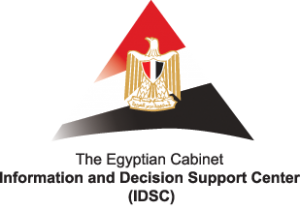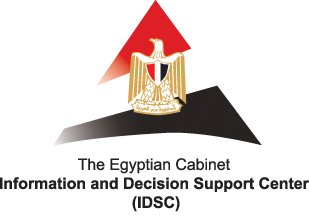
Egypt’s Information and Decision Support Centre (IDSC) will now be under presidential and cabinet supervision, having previously been overseen only by the cabinet, according to an IDSC statement regarding a draft bill on the procedure.
The bill will be sent to the presidency for approval.
“The body will be switched from one that represents the government to an impartial body with a national remit accommodating all intellectual trends and serving all national entities,” said the statement.
According to the draft, IDSC “will become to be a national entity that serves the government, the presidency, the private sector and civil society. Previously, it was solely a government entity serving only the cabinet and the administrative body of the state”.
The draft bill also states that IDSC will be an independent body “with its own character”. It will be overseen directly by the prime minister, but “with its decisions now potentially implemented since they will have presidential approval”.
“It’s a draft, yes, but nearly 100% of it will come into effect,” said Emad Mohamed, the media relations officer at the IDSC.
IDSC is one of Egypt’s most prominent think tanks. Previously overseen entirely by the Cabinet, the body was tasked with supporting decision-makers on a number of economic, social and political issues.
The decision also states that the head of IDSC will be appointed directly by the president for a period of four years.
IDSC will have a general board with 14 members, including some from ministries and some from other government bodies as well as experts from outside the governmental system.
IDSC will now also be able to open branches in various governorates instead of being situated only in Cairo.
The decision also states that IDSC “will become an entity that has the right to economically use its capabilities and its products”. Until now “it has been a service depending entirely on the state budget”.
Mohamed confirmed that the body will be “marketing its own services” from now on.
He continued: “We have been an entity publishing just ‘recommendations’; but following this decision, we will become a vital entity that produces studies and decisions which may actually be considered and implemented.”
When asked about the move’s aim, he said: “It is for the purpose of more transparency, accuracy and objectivity, as IDSC has been an entity under the control of the government, but after this decision it will be an independent entity.”
Data mining and dealing with “huge national databases” will fall under its mandate.
“The centre will have the right to get any data, information or studies from governmental entities,” said the statement.
Commenting on the move, human rights lawyer at the Egyptian Centre for Economic and Social Rights (ECESR) Malek Adly called it a “brazen” act.
Adly added that the move means that not all data will be made available to the public.
“The Egyptian constitution says that the public has the right to information, and that the data should be available for everyone,” he said. “Granting the supervision of such a body as IDSC to the presidency means they [the presidency] will now have complete control over such data.”
He said that IDSC will not “achieve independence of any kind”.
“This makes the office of the presidency much more prominent and more powerful than it should be,” he concluded.




